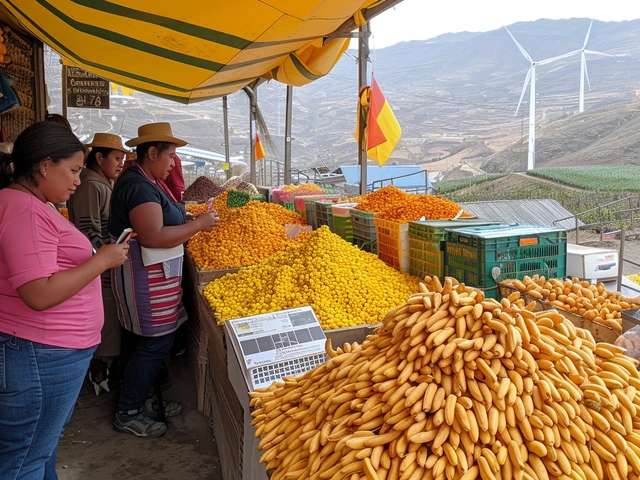Occupations in Ethiopia: What You Really Need to Know
Trying to figure out which job actually pays well in Ethiopia? Wondering about career options beyond what people usually mention? Jobs here come with their own mix of challenges, growth, and income ranges—and knowing what’s out there gives you a serious head start, whether you’re just starting or looking for something new.
One thing’s clear—Ethiopia’s job market is changing fast. Sectors like agriculture, manufacturing, construction, and tech are booming. For example, manufacturing plants popping up around Addis Ababa and regional cities create not just factory positions, but roles in logistics, finance, and management. Tech companies and digital platforms, from local startups to remote freelancing gigs, are putting new types of jobs in reach, especially for young people willing to pick up digital skills.
Salaries in Ethiopia differ a lot. Entry-level jobs in factories, hotels, or retail usually start low, sometimes around 2,000 to 4,000 ETB per month. High-demand skills bump that figure up—think health care, engineering, and IT roles, which can see monthly paychecks of 10,000 ETB or more, especially in private companies or NGOs. Teachers and pharmacists offer steady wages but also face big differences based on whether they work in public or private sectors.
But here’s the thing: having a degree isn’t always a must-have. A hands-on skill like plumbing, electrical work, or baking can put you in higher demand than a general office job. The secret? Understanding what employers—big hotels, foreign investors, city governments, and factories—are actually looking for. For tech jobs, knowing English and being comfortable with basic software is a game-changer. For healthcare or construction, solid local experience matters more than fancy certificates.
If you want to make more money, think flexibility. Many professionals in Ethiopia take up side hustles—teaching languages, driving for ride-share apps, or running a small shop in addition to their main job. Remote work is also getting more popular with the rise of online platforms and better internet, letting people earn dollars or euros working for clients abroad while living locally.
A common worry is job stability and salaries keeping up with living costs, especially in cities like Addis Ababa. Rent, transport, and food prices go up, but so do opportunities—if you’re ready to jump on new roles or consider moving to emerging industrial hubs outside the capital.
Investing in practical skills, not only degrees, has real value. For anyone looking to make smarter career moves in Ethiopia, keep an eye on what’s trending in big cities, but don’t ignore fast-growing regional centers like Hawassa and Dire Dawa.
No matter where you’re starting from or aiming to go, exploring Ethiopia’s occupation landscape is about finding useful info, thinking creatively, and being ready to adapt. There are opportunities for every skillset—you just need to know where to look and how to stand out.





